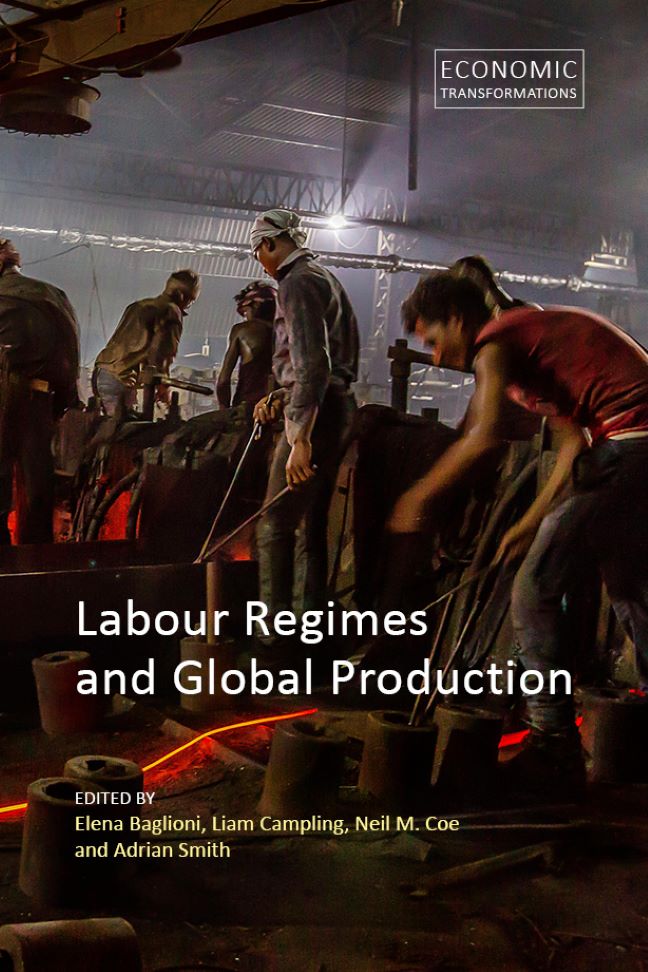12 - Transnational Private Regulation and Labour Regimes in Indonesia and China
Published online by Cambridge University Press: 20 January 2024
Summary
Introduction
Consumer-facing firms in affluent countries have become de facto regulators of working conditions around the world. Through ethical sourcing policies, codes of conduct, compliance auditing and capacity-building initiatives, large retailers and brands in the apparel, electronics, food and home furnishing industries routinely “push” rules for safe and decent work through their GPNs. Although this began in the 1990s as a strategic response to high-profile scandals and anti-sweatshop activism, it has become a well-institutionalized feature of transnational corporations and GPNs. For instance, all the world's 25 most valuable brands (as ranked by Interbrand in 2020) have rules pertaining to labour conditions in their GPNs. Some firms rely on their own policies, while others use standards developed by industry groups such as the Responsible Business Alliance or multi-stakeholder initiatives such as the Ethical Trading Initiative or Fair Labor Association (FLA).
These rules are rarely implemented fully (Amengual, Distelhorst & Tobin 2020; Locke 2013) and are far from sufficient guarantees of safe and decent work (Anner 2019; LeBaron, Lister & Dauvergne 2017). Nevertheless, they represent a form of transnational private regulation (TPR) in which lead firms in GPNs adopt, and to some degree enforce, rules for suppliers’ employment practices. Supplier factories and farms are the targets of this type of regulation, and they are typically asked to demonstrate compliance or face the risk of losing orders.
For many proponents, TPR has the potential to establish norms of decency in otherwise cut-throat industries, bypass captured or corrupt governments and create an alternative to inter-governmental organizations that have been reluctant to set international labour standards (Abbott & Snidal 2009). Many of these optimistic accounts are animated by what one of us (Bartley 2018) calls a “hope of transcendence”. This hope rests on the idea that market demands can, essentially, lift particular sites of production out of their local contexts and up to the level of global best practices. If this is true, then TPR could represent a profoundly important structuring force in the global economy, introducing alternative norms and production practices, even if these are not always fully implemented.
In this chapter, we illustrate one way in which this “hope of transcendence” is mythical.
- Type
- Chapter
- Information
- Labour Regimes and Global Production , pp. 209 - 228Publisher: Agenda PublishingPrint publication year: 2022

